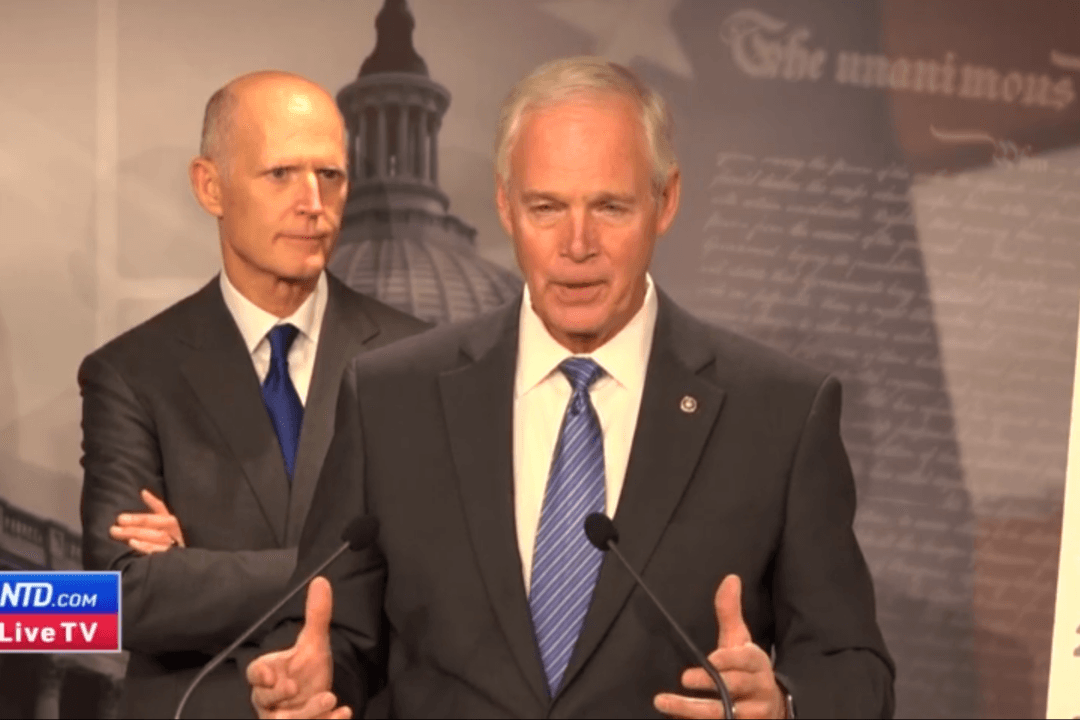Sen. Ron Johnson (R-Wis.) will offer an amendment to the nearly 5,000-page, $1.7 trillion omnibus spending bill that, if adopted by the lame-duck Senate, would erase more than 4,000 earmarks from the measure.
“There are, let me get the exact numbers, $9.8 billion worth of earmarks. Thousands of individual projects here—both Democrat and Republican,” Johnson told reporters at a Dec. 20 news conference.





